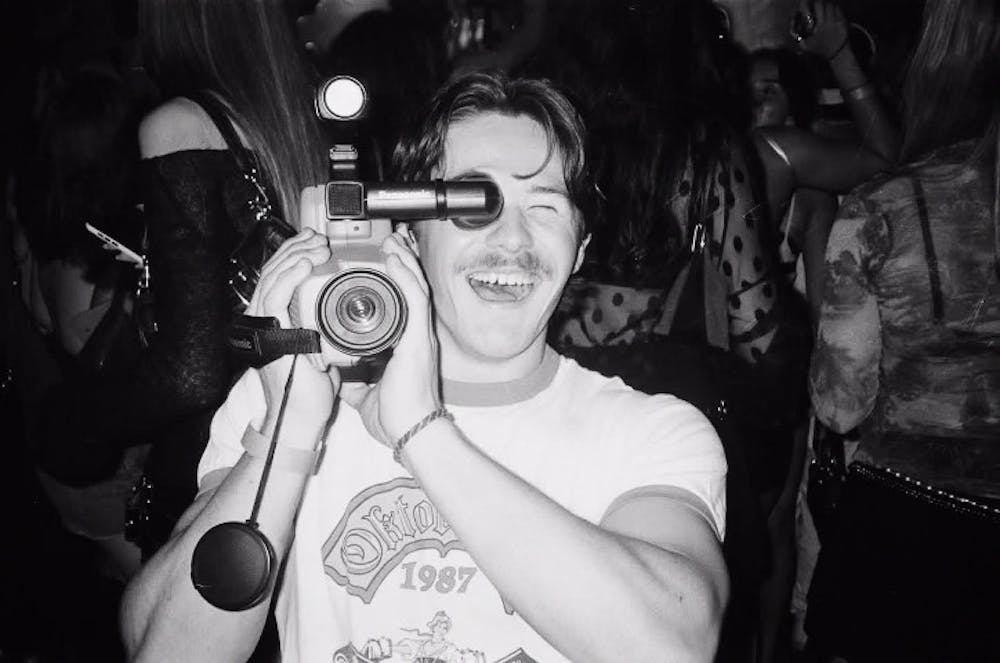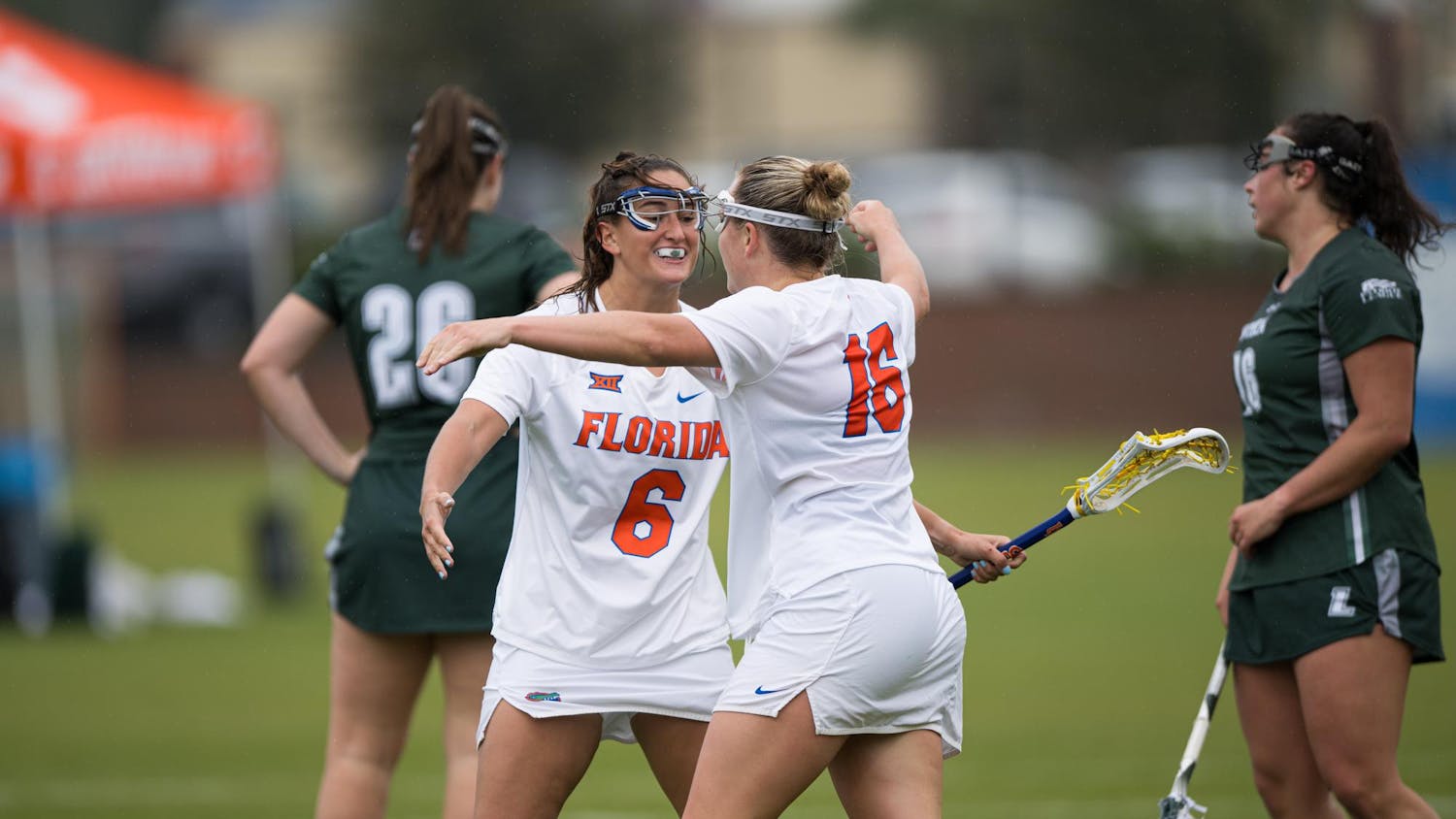In a world defined by instant gratification where packages arrive with the tap of a button and photos are snapped and shared in seconds, a nostalgic rebellion is quietly unfolding.
It begins with a click. Not the digital tap of a touchscreen, but the visceral, metallic clack of a 35mm film shutter. The sound is deliberate and final — a snapshot frozen in time. The moment captured won’t appear instantly on a glowing screen. Instead, it disappears, tucked away on a strip of film, waiting to be coaxed to life through the alchemy of development.
This is the allure of film photography: a deliberate, almost meditative antidote to the on-demand culture of today. Its connoisseurs crave the imperfections of light leaks, dust specks and the dreamlike grain that no filter or application can replicate.
Major film photography companies have reported significant surges in demand for film products in the last decade. In June, the Pentax 17 was released as the first film camera from a major brand since the early 2000s. According to The Verge, Kodak temporarily halted film production in November to upgrade its Rochester, New York, factory, aiming to enhance capacity and meet the growing demand in still photography sectors.
So, why are so many 21st century storytellers trading megapixels for negatives?
Miguel Cardona’s journey began with architecture and most recently developed into the creation of Florida Film Club for local enthusiasts. The 33-year-old Gainesville film lab owner was initially drawn to photography as a way to capture architectural models during his time at UF, relying on the precision and convenience of digital cameras. He ultimately pivoted to event and product photography during college, turning his hobby into a job and extinguishing his once-burning architectural passion.
“I think it's important to do things that feed your soul when you really enjoy something, because obviously when I first started, I had no idea that I would be turning it into a business,” Cardona said. “Finding a way to turn it into a service for others as well is where the entrepreneurial spirit comes in.”
That’s when Cardona dove into film photography headfirst, developing his own rolls of film at home. He turned his home into a makeshift darkroom, storing bottles of chemicals and dyeing negatives hanging from makeshift clotheslines. At first, he used whatever old cameras he could find — hand-me-downs from family, thrift store finds or trades with other film photography enthusiasts.
In 2023, an accidental discovery took his passion to the next level. Cardona stumbled upon a Facebook post where a Missouri man was selling his late father’s camera collection. Intrigued, Cardona reached out and learned the collection was enormous, featuring boxes upon boxes of vintage cameras and lenses all for an astonishingly low price.
Without hesitation, he packed his car after a full work day and drove over 15 hours from Gainesville to Missouri, where he was met with a U-Haul worth of cameras and equipment. Cardona loaded the truck and headed back to Gainesville, his mind racing with possibilities.
Back home, a trade with a retiring local photography professor added the cherry on top to his growing collection — a full darkroom setup with a highly sought-after Jobo film processor to develop film prints, acquired in exchange for a few carefully selected cameras.
Piece by piece, Cardona’s hobby transformed into something much larger. He began selling and trading pieces from the Missouri collection, carefully reinvesting the profits to purchase professional-grade equipment. Slowly but surely, the idea of a full-service film lab in Gainesville began to take shape.
Soon, Cardona’s vision came to life. In a water closet hidden behind a red door in a quaint, unsuspecting brick building in downtown Gainesville, he began developing film for personal work. Last June, the full-sized room next to the restroom became available for rent. That’s when he took the leap of faith.
“I was like, ‘OK, well, this will give me the opportunity to get a lot of the other equipment in place and have a dedicated space to then offer this as a service,’” Cardona said. “I've spent the entirety of the fall semester getting the space to be functional, learning the equipment.”
Thus, Cardona’s brainchild was born: the Florida Film Club, a Gainesville film lab that officially opened in September.
Though the lab’s existence is in its adolescent stages, according to Vance Herbener, a full-time environmental scientist and one of the lab’s part-time film developers, the lab has been well received by the Gainesville arts and small business communities.
Herbener was put in contact with Cardona by a friend who knew he’d been a film photography hobbyist. Herbener’s journey into film photography began just two years ago, sparked by a camera long forgotten in his parents' garage.
“The combination of loving old tech and the unique look of film photos drew me in,” Herbener said. “I think there’s this adage of ‘you’ve got to romanticize your own life,’ and film photography helps me do that.”
Herbener’s profession is often tied to ultramodern technology, but this doesn’t stop him from taking his film camera with him during field days on the job.
Initially, Herbener sent his rolls of film to labs by mail for development, but the costs quickly added up. A year and a half ago, he took matters into his own hands, learning to develop black-and-white film in his bathroom, similar to Cardona.
“The lab is very much a work in progress that we hope can become the place where local film photographers can buy quality film, cameras, scans and prints,” Herbener said.
Until recently, Gainesville’s film photography enthusiasts had no brick-and-mortar labs to call their own. The last community darkroom closed its doors over two years ago, forcing photographers to mail their precious rolls of film to far-off labs. It was a costly and nerve-wracking process, plagued by the risks of lost packages, sun damage or simply waiting weeks to see the fruits of their creative labor.
Whether it’s disposable cameras from the drugstore or dug-up hand-me-down point-and-shoots, Generation Z is discovering the once-lost technology for the first time.
For 19-year-old UF art student Sydney Hinton, film was introduced to her life in middle school through the viewfinder of her mom’s old film camera, which she still shoots on today. Being able to develop and scan her film at a lab in town has allowed her to grow and develop her skills, she said.
For many Gen Z film enthusiasts, it’s their first taste of a world where every shot counts, where film rolls are finite and the magic lies in the waiting.
“I think there's something really special about film photography that you don't get with a digital photo,” said Hinton. “Each image becomes so much more valuable.”
Contact Sabrina Castro at scastro@alligator.org. Follow her on X @sabs_wurld.
Sabrina Castro is a senior journalism student and Spring 2025 Avenue reporter. When she's not off chasing the latest trend story, you can find her scrolling TikTok or searching local thrift stores for vintage gems.






